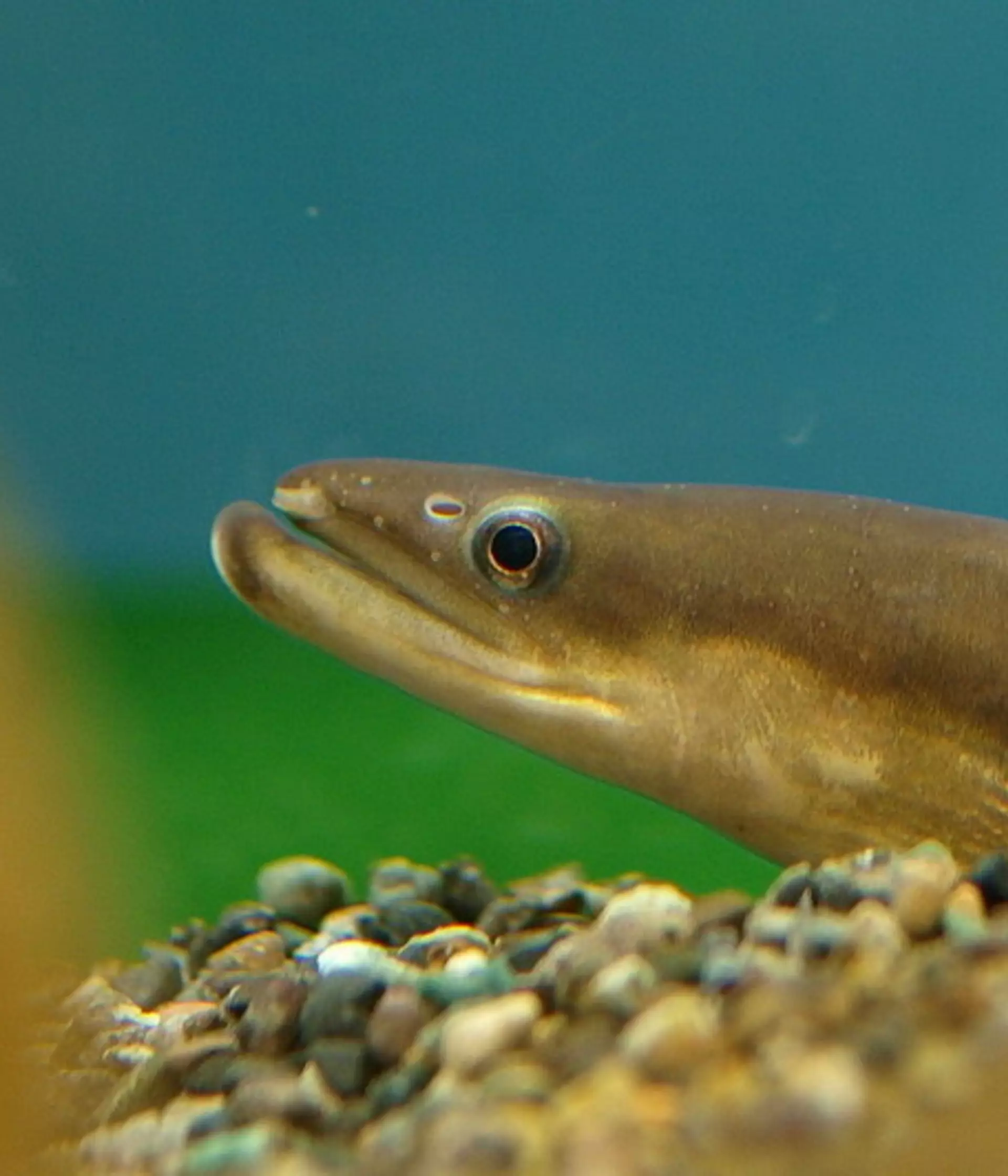Dr Matthew Gollock
Aquatic Species and Policy Programme Lead
For over 40 years there has been growing concern that all 16 species of freshwater eels (Family Anguillidae) have suffered a decline in numbers.
The IUCN Anguillid Eel Specialist Group (AESG), established in 2015 and chaired by Dr Matthew Gollock, ZSL, brings together experts and advocates for science-led conservation of these species.
Why is collaboration needed?
While the need for eel conservation is clear given their decline, efforts are being hampered by a dearth of knowledge on the biology of the species and how threats are impacting them.
Eels have a complex life-cycle, feeding and growing in a range of aquatic environments including rivers, then migrating to the ocean to breed. This life-cycle makes management and conservation extremely difficult with the vast majority of efforts focussed on the freshwater environment.
The aim of the AESG is to serve as an expert body for anguillid species, with the following key objectives:
- To identify gaps in knowledge, stimulate and promote scientific research on anguillid species.
- To advocate conservation of anguillid species, through monitoring and threat mitigation.
- To act as a forum for communication and knowledge transfer between partners working on eel species.
- To carry out advocacy work with governments, research institutions, conservation organisations and communities to develop and implement effective measures.
Why are eels declining?
There are various factors that we think are linked to eel declines; these include:
- Changing oceanic currents/climate change
- Urban and industrial development
- Disease
- Fisheries
- Habitat loss, including water being diverted from its natural course for use by humans.
- Barriers to migration including mortality caused by pumps and hydropower turbines
- Pollution
- Predation
These factors are believed to vary in their effects depending on the species and their associated geography, and in what combination they occur.
June 2013: First-ever workshop to assess the species
ZSL hosts the first-ever workshop to assess status of the anguillids using the IUCN Red List categories and criteria. Thirteen of the 16 species were assessed – the remaining three are being assessed by researchers in New Zealand – and the assessments can be viewed on the IUCN Red List website.
August 2014: Japan workshop
After the listing of the Japanese eel as ‘Endangered’ on the IUCN Red List, ZSL/AESG travelled to Japan in August 2014, to work with colleagues to bring together the eel stakeholders at a one day workshop. From this a number of initiatives have developed including a national eel forum, a commitment to reduce the amount of the species used for aquaculture and a licensing system for farming.
November 2014: The European eel is listed on the Convention on Migratory Species
ZSL/AESG in collaboration with Sargasso Sea Alliance and the Government of Monaco presented the science case for the European eel to be listed on Appendix II of the Convention on Migratory Species (CMS) in Bonn. This resulted in the proposal being put forward to the Conference of the Parties in Ecuador in November 2014, where the listing was approved. Read more.
March 2015: Workshop on trade
A workshop was held at the ICES headquarters to develop criteria that could potentially be used to assess a whether it is sustainable to trade European eels outside of the EU. This could have a huge impact on trade in the species and other anguillids.
July 2015: Eel Red List paper published
A paper that consolidated the 13 Red List assessments and carried out further analysis was published by the global team of experts that attended the workshop held at ZSL in 2013.
Read the paper
October 2015: Workshop on the status of the American eel
A workshop was held in Portland, Maine to bring together scientists, policymakers, managers and fishers associated with the American eel, to encourage discussion and collaboration. ZSL/AESG attended to put this species in the context of anguillid eel conservation globally.
September 2016: Anguillid eel motion adopted at IUCN World Conservation Congress
A motion submitted to the IUCN World Conservation Congress in Hawaii by ZSL, and supported by a number of other major NGOs, requesting that 'Anguillid eels are promoted as flagship species for aquatic conservation’ was adopted by a clear majority. This motion will help to guide IUCN’s policy and work programme, as well as influence many other organisations around the world.
